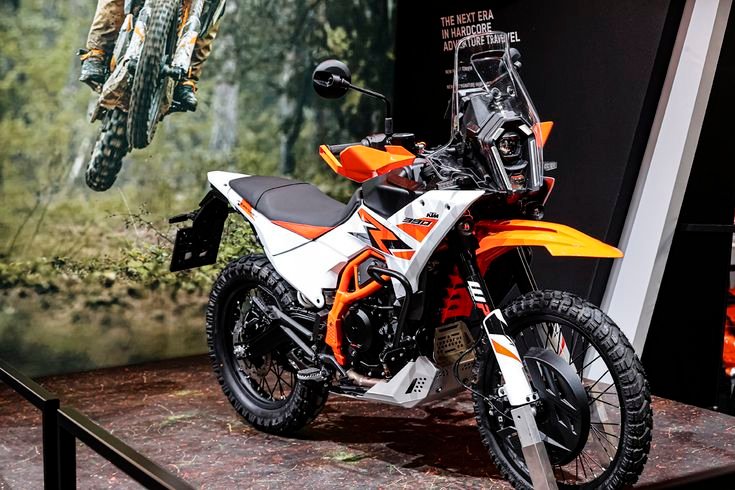
The global automotive industry is a complex network of suppliers, manufacturers, and distributors. It relies heavily on the seamless flow of parts and materials across borders to produce vehicles efficiently and cost-effectively. However, in recent years, supply chain disruptions have increasingly impacted car prices, with 2024 witnessing significant effects. This article delves into the causes of these disruptions, their specific impacts on car prices, and the broader implications for the automotive industry and consumers.
Understanding Supply Chain Disruptions
Supply chain disruptions occur when there is an interruption in the production, transportation, or distribution of goods. In the automotive industry, these disruptions can stem from various sources, including:
Component Shortages: Critical components like semiconductors, used in everything from engine management systems to infotainment, have faced severe shortages.
Transportation Bottlenecks: Global shipping and logistics have been strained by port congestion, container shortages, and limited air cargo capacity.
Labor Shortages: The COVID-19 pandemic has led to labor shortages in manufacturing plants, shipping ports, and distribution centers.
Geopolitical Tensions: Trade wars, tariffs, and political instability can disrupt the flow of goods and materials.
Natural Disasters: Events like earthquakes, floods, and hurricanes can damage infrastructure and halt production in key manufacturing regions.
Key Supply Chain Disruptions in 2024
Several key disruptions have had a profound impact on the automotive supply chain in 2024:
Semiconductor Shortage: The semiconductor shortage, which began in 2020, has persisted into 2024. The automotive industry competes with consumer electronics for these critical components, leading to production delays and reduced vehicle output.
Shipping and Logistics Issues: The lingering effects of the COVID-19 pandemic, coupled with new challenges like the Suez Canal blockage and port congestion in key shipping hubs, have created significant delays and increased transportation costs.
Raw Material Shortages: Shortages of essential raw materials, such as steel, aluminum, and lithium (for batteries), have led to higher costs and production delays.
Energy Crisis: Fluctuating energy prices and supply constraints, particularly in Europe and Asia, have increased production costs for automotive manufacturers.
Impact on Car Prices
The disruptions in the supply chain have had a multifaceted impact on car prices in 2024:
Increased Production Costs: Shortages of critical components and raw materials have led to higher production costs. Manufacturers have had to pay more for parts, energy, and labor, and these costs are often passed on to consumers in the form of higher vehicle prices.
Reduced Vehicle Supply: Production delays and reduced output have led to lower inventory levels. With fewer cars available, the laws of supply and demand dictate that prices rise. Limited availability of popular models has exacerbated the situation, leading to significant price increases.
Higher Dealer Markups: Car dealerships, facing limited inventory, have increased their markups on both new and used vehicles. This practice, often referred to as “market adjustment” pricing, has made purchasing a car more expensive for consumers.
Increase in Used Car Prices: With new car supply constrained, demand for used cars has surged. This increased demand, coupled with reduced supply (as fewer new cars enter the market), has driven up used car prices significantly.
Shift in Consumer Preferences: Higher prices and limited availability of new vehicles have led some consumers to delay their purchases or opt for alternative forms of transportation, such as leasing or car-sharing services. This shift in behavior further impacts the market dynamics and pricing strategies.
Broader Implications for the Automotive Industry
The supply chain disruptions and resulting price increases have broader implications for the automotive industry:
Profit Margins: While higher prices can boost revenue, the increased production costs and supply chain challenges can squeeze profit margins for manufacturers. Companies must balance the need to cover costs with competitive pricing to maintain market share.
Innovation and Investment: The disruptions have highlighted the need for more resilient and flexible supply chains. Automotive companies are likely to invest in new technologies, such as artificial intelligence and blockchain, to enhance supply chain visibility and efficiency. Additionally, there may be increased investment in localizing supply chains to reduce dependence on global suppliers.
Electrification and Sustainability: The push towards electric vehicles (EVs) and sustainable practices may be impacted by supply chain challenges. The scarcity of key materials, such as lithium for batteries, could slow down the adoption of EVs or increase their costs. However, it may also drive innovation in alternative materials and recycling processes.
Consumer Behavior: Persistent high prices and limited availability of new cars could lead to long-term changes in consumer behavior. Increased interest in used cars, leasing, and subscription services may reshape the automotive market. Consumers may also place greater emphasis on vehicle longevity and maintenance.
Strategies for Mitigating Supply Chain Risks
To navigate the ongoing challenges, automotive companies are employing several strategies to mitigate supply chain risks:
Diversification of Suppliers: Relying on a single supplier for critical components can be risky. Companies are diversifying their supplier base to reduce dependency and ensure a more stable supply of parts.
Inventory Management: Improved inventory management practices, such as just-in-time (JIT) and just-in-case (JIC) inventory strategies, can help balance efficiency and resilience. Companies are also investing in advanced analytics to predict demand and manage inventory more effectively.
Localizing Supply Chains: To reduce exposure to global disruptions, some manufacturers are moving production closer to their key markets. This localization can shorten lead times, reduce transportation costs, and improve supply chain stability.
Technology Integration: Implementing advanced technologies like AI, IoT, and blockchain can enhance supply chain visibility, predict potential disruptions, and optimize logistics. These technologies enable real-time tracking, predictive maintenance, and efficient resource allocation.
Strategic Partnerships: Collaborating with suppliers, logistics providers, and technology companies can create a more robust supply chain. Strategic partnerships can enhance flexibility, improve communication, and facilitate joint problem-solving.
Future Outlook
Looking ahead, the automotive industry is likely to continue facing supply chain challenges, albeit with evolving strategies to manage them. Several trends and developments will shape the future landscape:
Resilience Building: The lessons learned from recent disruptions will drive efforts to build more resilient supply chains. Companies will focus on flexibility, diversification, and technology integration to mitigate future risks.
Sustainability Initiatives: The push for sustainability will influence supply chain practices. Companies will seek to reduce their carbon footprint, promote ethical sourcing, and invest in circular economy initiatives, such as recycling and remanufacturing.
Digital Transformation: The digitalization of supply chains will accelerate, with increased adoption of AI, blockchain, and IoT. These technologies will provide greater visibility, enhance decision-making, and improve overall efficiency.
Policy and Regulation: Governments may introduce policies and regulations to support supply chain resilience, such as incentives for local manufacturing, tariffs on imported components, and requirements for supply chain transparency.
Consumer Expectations: Consumers will continue to demand transparency, reliability, and sustainability in their vehicle purchases. Automotive companies must align their supply chain practices with these expectations to maintain customer trust and loyalty.
The impact of supply chain disruptions on car prices in 2024 has been profound, affecting both new and used vehicle markets. Higher production costs, reduced vehicle supply, and increased dealer markups have led to significant price increases, influencing consumer behavior and industry dynamics. To navigate these challenges, automotive companies are adopting strategies to enhance supply chain resilience, invest in technology, and build more sustainable practices.
As the industry evolves, the lessons learned from recent disruptions will drive innovation and transformation, shaping a more resilient and sustainable future for the automotive market. By embracing these changes and adapting to new realities, the industry can continue to thrive and meet the demands of consumers in an ever-changing landscape.
ALSO READ: Skoda’s Strategic Expansion in India: New Models and Future Plans





